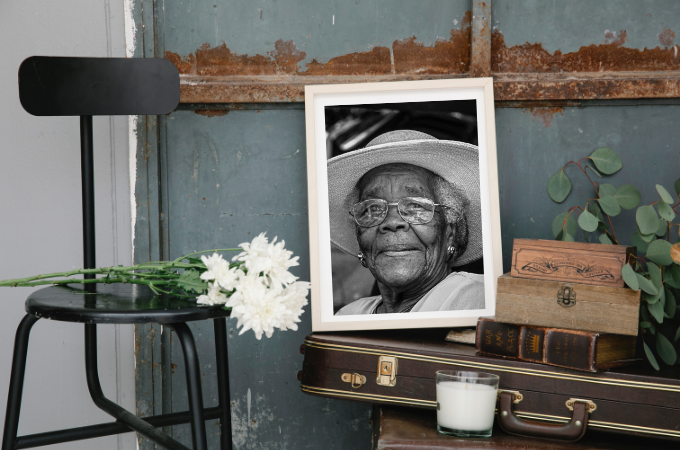
Akosua left home early to board a bus to Tema, carrying with her a Ghana Must Go bag. The history behind the bag itself saddened her, a permanent reminder of the expulsion of Ghanaians from what they believed was their second home. That was what her grandma said whenever she recalled the day she fled Nigeria.
Back in the 80s, her grandma stuffed her belongings into a chequered bag, ran to the border and pushed through a large crowd to return to her homeland. She had no option but to flee or face imprisonment had she stayed. Her Ghana Must Go bag wasn’t the only thing she took as she carried with her fear of the unknown. But her loss went beyond physical possessions. She was forced to leave behind the life she built for years and abandon friendships that had familial bonds. And yet, with every loss came gains that compensated for the pain, and in her case, she kept the farewell gifts she received, from shoes to dresses, items she cherished for years.
The last time Akosua saw her, she was wearing one of those shoes, the same one she was gifted before she fled. It still fits, she said, and her tiny voice shook when she walked in them. Now, she couldn’t walk without the help of a stick, and the option to run as she did in the 80s didn’t exist. She turned seventy a week after Akosua turned twenty-three, and her birthday wish was to live long enough to see her future grandchildren run towards her, to sing them to sleep on nights when they were restless and rock them gently in her arms.
Akosua arrived in Tema and hailed a taxi to her grandma’s house. Upon arrival, she left her Ghana Must Go bag at the veranda, entered her grandma’s room, sat on the chair next to her bed and held her hand. Her skin was wrinkled, but her smile was smooth, and the glimmer of affection in her eyes sparkled as she looked at Akosua.
“My granddaughter is grand,” she said, and Akosua’s smile turned into a grin.
“So are you,” Akosua replied. The warmth in her voice could be compared to the heat in the room.
Other than genetics, they shared the same Akan name, Akosua. Her grandma was also born on a Sunday, and the sun always shined a little brighter that day. But Akosua’s visit lacked that lustre she was accustomed to. The light felt a little dull, slightly dim, and not as illuminating as it usually was because her grandma’s health declined each day. She inched closer to death than life, her coughs grew louder, the tremble in her hands never steadied, and the fever that left, returned. It was even stronger than before, its comeback a threatening force, and her rising temperature frightened Akosua.
“How was your trip here?” she asked.
Akosua gave her hand a little squeeze. “Not too bad. They’ve increased the fare again.”
Her grandma sighed. “Hmm… everything is increasing nowadays.”
If only Akosua had the power to increase her grandma’s energy and add another decade or two to her life. She longed to prolong her grandma’s stay on this earth and restore the health she once had. Another chesty cough made Akosua wince, and she offered her some water to drink. She cleared her throat after drinking it and thanked Akosua, still smiling.
As she let go of her grandma’s hand, she recalled letting go of the resentment she had for the Ghana Must Go bag. The sight of it used to anger her, and she refrained from filling the bag with goods or much else. It was the name itself, Ghana Must Go, that irritated her. It could have been called anything. In fact, most bags were just that, bags. There was no extra term given to handbags, suitcases, or tote bags unless they belonged to a brand. Akosua disliked the fact that Ghana Must Go happened to be the only bag she knew that was named. But with time she added words to it so it became Ghana Must Go Prosper, or Ghana Must Go Flourish, both of which happened to her grandma. She prospered and flourished when she returned to her homeland, became a seamstress, a successful one, and opened a boutique that became popular. Even in her bedridden state, her grandma still had this zeal in her that showed in her laughter and her voice.
She didn’t want to be the only Akosua left in that house and prayed for her grandma Akosua to stay with her for a few more years.
“I drew up a will last week—”
“Grandma! Please don’t speak about that. Not now.”
“But I have to. I’m not getting any younger. God might call me any minute from now.”
“Please don’t say that,” Akosua whispered. She felt a sharp pang in her chest and shifted in her seat.
“Don’t you want to know why I asked you to bring a Ghana Must Go bag?” her grandma asked.
“Why?”
“I’ll leave a few things behind for you and I think most of it will fit in that bag,” she said and pointed to a brown, cardboard box on a chair. ‘Everything in that box is yours.’
Akosua left her grandma’s side to grab the box and rummaged through it. The first thing she saw was a wedding dress.
“It can be your something old when you eventually get married. Your mother wore it to her wedding. It has been passed down for generations now. When you settle down—”
“I’m already settled, grandma. I don’t need a marriage for that to happen.”
“Well, regardless, I want you to have these things to remind you of me.”
“I don’t need any reminders because I’ll never forget you.”
“Neither will I,” her grandma said. “Where’s the bag? Let me see it.”
Akosua got up and went to the veranda to retrieve her Ghana Must Go bag. She was only gone for about a minute or so, but her grandma was gone for good upon her return. Her eyes were closed, and her body was stiff without a pulse, cold to the touch. Akosua stood still when she first saw her body, frozen by something stronger than shock. When she finally moved, each step carried with it the weight of her grief. Unlike her words, her tears flowed as she held her grandma’s hands for the last time. Akosua stayed in the same spot for hours until her mother tapped her on the shoulder. She wanted to stay in that house forever and surround herself with fond memories that made her nostalgic. The air was humid, even more so when her grandma was carried outside, and her body was greeted by the scorching sun. Akosua left with her Ghana Must Go bag and took with her the items in the box.
Preparations for the funeral started later that week. However, that didn’t mean her family were emotionally prepared for it. Neither of them was prepared to see her pale face or witness her casket being lowered into a shallow grave. Akosua’s eulogy highlighted the love they shared, as well as the loss that stayed with her. Although she was dead, the memories they created didn’t die as Akosua celebrated her grandma’s life.
Photo by Angela Roma and Black Light Media from Pexels




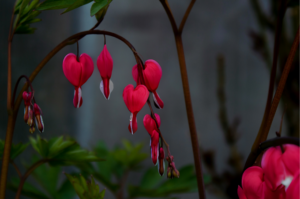
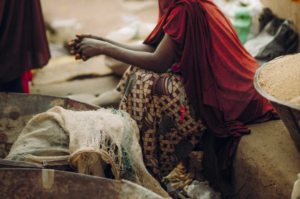
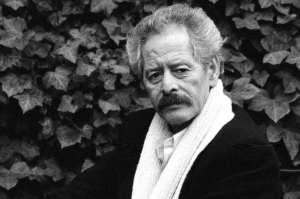
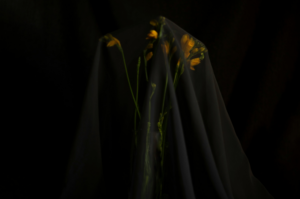


COMMENTS -
Reader Interactions